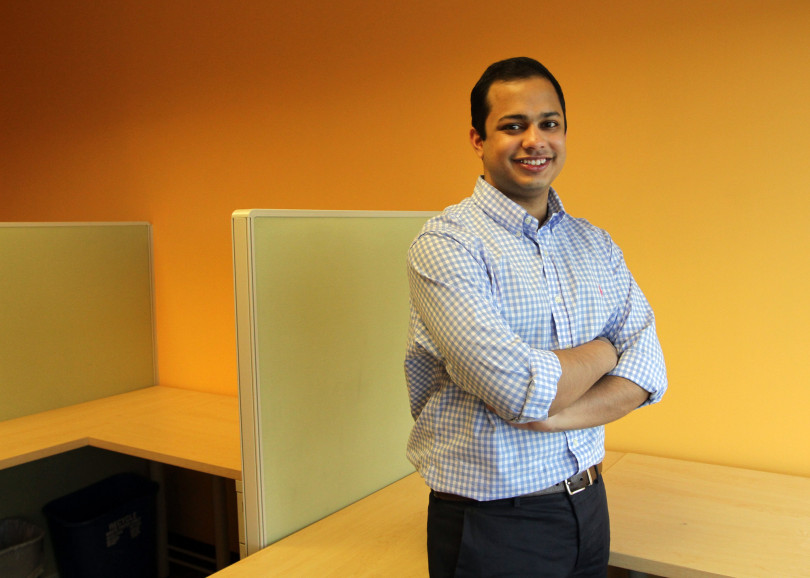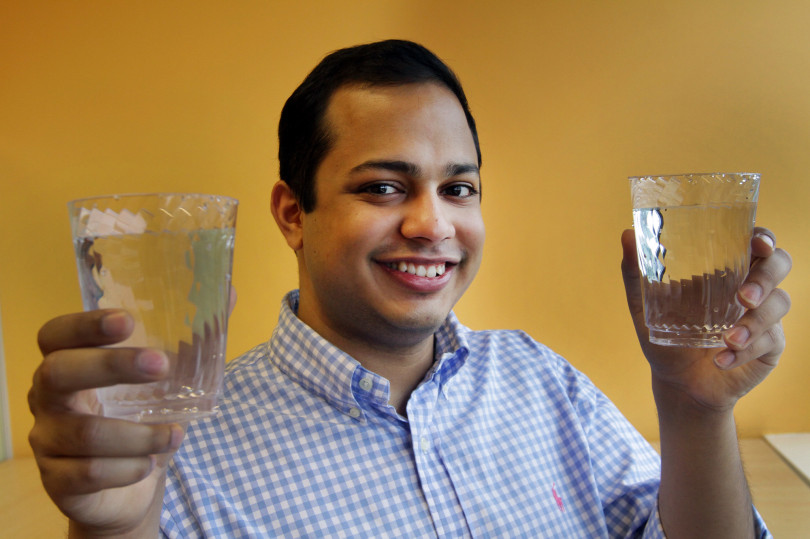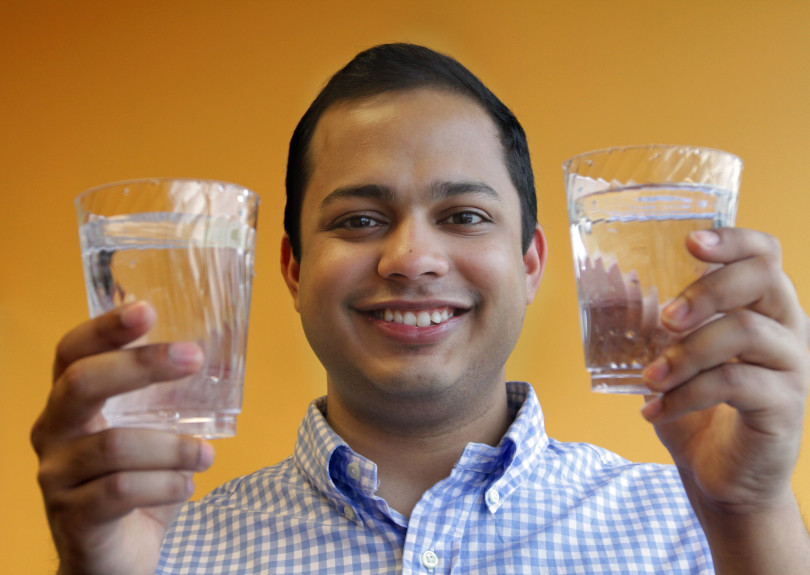Note: This was originally published by the Boston Herald (original link | PDF ).
When you are tackling one of the biggest problems on the planet, you need as many people on your side as possible.
That is the strategy Drinkwell, a Cambridge-based startup, is using to help provide clean water to the Third World.
“You really want to work with locals and have local ownership of the problem,” said Minhaj Chowdhury, CEO and co-founder of Drinkwell.
Drinkwell, which has developed a cheap, reusable system of removing toxins such as arsenic, fluoride and iron, partners with people in third-world villages to treat and sell clean water to their neighbors.
“What you really want to do is create a true opportunity for the community to maintain the system and, while you’re at it, create some kind of economic opportunity,” Chowdhury said. “What we wanted to do is come up with a solution that actually lasts. It’s really life and death for a lot of these folks.”
Nearly 800 million people do not have access to clean water, and as many as 8 million people a year die from water related illnesses, according to the United Nations.
Drinkwell’s model is designed to create a permanent solution. Many programs that have tried to bring clean water to the Third World have fizzled when funding waned. Drinkwell will not have this issue, Chowdhury said, because towns and villages will rely on local employees instead of an international group.
Drinkwell’s water purifying system fits over existing wells, making a liter of clean water available for half a penny.
The system cleans water using ion-exchange technology, stripping toxins from the water using reusable resin beads, to provide enough water for 600 households. It produces 99 liters of clean water for every 100 liters of water put in, much more than established methods.
Drinkwell systems are connected to Twitter, so they can be monitored remotely. Because many people have basic access to cellphones and Twitter in the countries Drinkwell is serving, information about the levels of toxins in certain systems and even how long the line is for clean water can be shared in real-time.
Announced as a MassChallenge finalist last week, Drinkwell currently has 200 systems in place in India, Laos, Nepal and Cambodia through various partnerships, but is hoping to put its own model in place soon.



